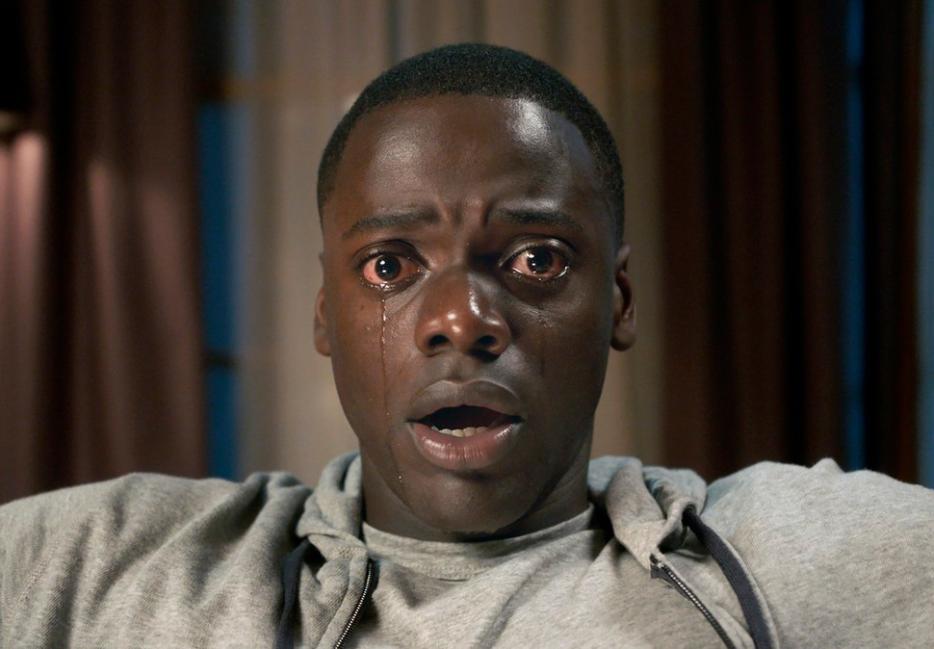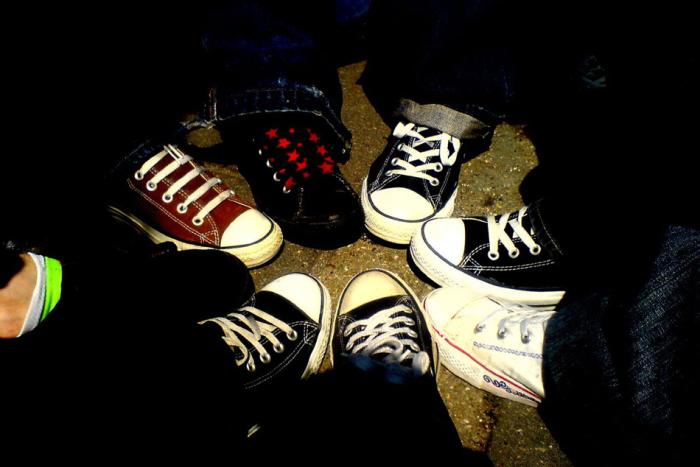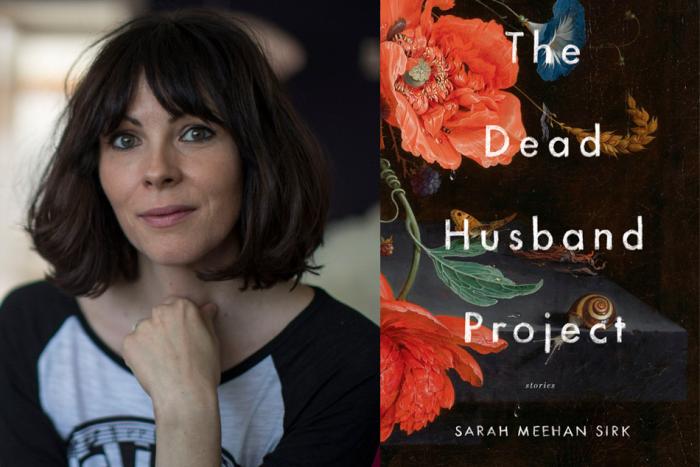A columnist for National Review and OUT, a neocon and a black man, a lover of black comedies and a hater of Black Lives Matter, film critic Armond White dwells in the liminal region between sincerity and absurdity. It makes sense, then, that despite having been reviewing and discussing films for more than three decades, the Internet mostly knows him as a joke, a metonym. Browse any online film forum, peruse any movie review’s comment section, or read one of the four Urban Dictionary entries penned in his honor, and you’ll see his name used as a catch-all for troll, contrarian, hack, hater, pretentious asshole—take your pick.
There was a time when these words were simply graffiti on a generally sterling byline. White had his quirks—he liked to review two movies at once, he liked to snipe at other reviewers, he loved prickly headlines (his review of I’m Gonna Git You Sucka was titled “Sucka: A Conspiracy of Dumbness”)—and they could grate when they were employed at full force, but there was a timbre to his writing. You never read an Armond White review and felt anyone else had written it or even could have written it. Part historical analysis, part posturing, part insult comedy, his reviews were electric, somewhere between sermon, college lecture, and celebrity roast. "In a sense, cinematographer Ernest Dickerson's work is far too rich for Lee's simplified demonstration of what Black and white people, men and women, don't know about each other. He's photographing real people, while Lee is using stick figures to dramatize a scene,” he wrote of Jungle Fever in 1991.
At that time White was the arts editor for The City Sun, a now shuttered black newspaper that circulated in New York City in the ’80s and ’90s. Published by Andrew Cooper, and managed by Utrice Leid, two black activists turned journalists, The City Sun distinguished itself from the consumerist cool of Jet and the cautious respectability of The Amsterdam News with bristling takedowns of black leaders and unfiltered commentary on the black community. In 1987, The New York Times described the paper as “new, tough black journalism.” When I interviewed White, he echoed this sentiment: “The black community had not known a serious newspaper before.” Elena Oumano, a former freelancer for The City Sun, offered me a less emphatic recollection, but her account still brims with quiet reverence. “With the passing of time, I really hold [the paper] in high regard. It was pretty unique,” she says. “There was a kind of overall point of view that was sharper, more willing to tell the truth.”
White defined himself by truthtelling, going so far as to ask his editor at Film Comment to change his byline to “The Resistance.” (He ended up sticking with his birth name, but he did repurpose the title for his 1995 collection of reviews.) He covered theater, music, and arts exhibits for The City Sun, but it was through film that he honed his voice. In 1987 he was nominated to join the New York Film Critics Circle (NYFCC) by Pauline Kael, a longtime New Yorker film critic. The appointment clearly meant a lot to him. “Growing up and going to school and reading great critics like James Agee, and Bosley Crowther, and Pauline Kael, and Andrew Sarris, and John Simon, and Stanley Kauffman ... I wanted to be among them,” he told me.
Once among them, he remained for years, retaining his membership when The City Sun closed in 1996 due to persistent financial problems; when his next employer, New York Press, closed in 2011 due to a winding series of mismanagements and staff dilutions; and when his following employer, CityArts, closed in 2014 because of dwindling ad revenue. During this period White served as the chairman of the NYFCC three times, which entailed hosting the organization’s annual awards banquet and organizing programs honoring and supporting film. He also began to make his name online, transitioning from a fringe New York critic to a fixture on Rotten Tomatoes (his negative reviews often robbed movies of that coveted 100 percent fresh rating) and a cultural commentator. “Hipster self-righteousness has become a blight on film culture,” he wrote for Slate, shifting from films to viewers as his subject of interest, a pivot that would come to define his approach to film. In 2004, he started publishing his annual “Better Than” list, a year-end compendium and critique of every other year-end list all in one, truthtelling in viral form.
His manifesto of sorts, “What We Don’t Talk About When We Talk About the Movies,” published in April 2008, was the culmination of all the threads he wove during his migration to the web. In it White speaks of shuttered newspapers, devalued intellectual labor, bland consensus, and PR-driven hype, and you can really sense how many forces his writing pushes against and why that fight matters to him. New York Press hadn’t bottomed out yet, but White wrote as if film culture was a barbarous wasteland populated by ignorant fanboys and dupable imbeciles who knew nothing of film. The ambient gloom of the financial crisis loomed, but curiously, the Internet itself became White’s focal point. “Although criticism is everywhere, and some online reviewers prove themselves honest and less beholden to the power elite than print critics, the problem is this: So many Internetters get to express their ‘expertise,’ which essentially is either their contempt or idiocy about films, filmmakers or professional critics,” he wrote. “Do movie critics matter?” he asked in 2010.
By 2014, the Internet had been increasingly questioning White’s own expertise. His reviews themselves made headlines (“Choice Quotes from Armond White's Green Hornet Review”; “First Bad Review for Toy Story 3 Comes Predictably from Armond White”), and his behavior at the NYFCC award banquets had become newsworthy (“World’s Crankiest Film Critic Makes Annette Bening Cry at Awards Show”; “Armond White debuts live version of his contrarian dick act at New York Film Critics Circle Awards”). And outside of the news cycle, his mere face had become visual shorthand for smugness. The truth was finally viral.
Things got real when the NYFCC ousted him following allegations that he heckled director Steve McQueen at an awards ceremony—calling the filmmaker, according to various reports, a "garbage man and a doorman." The ouster was decided upon by an internal vote; Owen Glieberman, a member of the NYFCC, publicly defended the decision. White immediately set about defending himself, embarking on an inconclusive press tour. On the SlashFilm podcast, he denied the claims and said that jealous haters were colluding against him. When he was interviewed by The Hollywood Reporter, he admitted to talking during the ceremony, but claimed that he couldn't have been audible to anyone beyond his table. And he told The New York Times that he did have some profane words that evening, but they were directed at someone at his table.
Whatever actually happened, while White did have an admitted history of disruption at these NYFCC banquets, it’s not clear why this would be the final straw: Multiple NYFCC members that I spoke with insisted on White’s guilt, but floundered when asked why or how it justified him being expelled, citing internal rules. White received an anti-censorship award for weathering the expulsion, a gloriously absurd turn for an ouster from a mere social club, but when a group of people whose profession is explaining their viewpoints can’t coherently articulate why they banned one of their members, it actually does feel a bit deserved.
Though White speaks of his early years in the organization with a palpable longing, he denies the allegations and dismisses the Circle now as a snake pit filled with hacks. "I was interested in becoming a member of the Film Critics Circle and the National Society of Critics because the critics that I admired were in those groups. And it was a great pleasure to be among them," he says. "And then they died. It stopped being a pleasure. And a different breed of person took over the group."
White's account feels too nostalgic to be taken entirely at face value, but even if the nature of the organization truly had changed, White believes there are fundamental differences between him and his contemporaries, in the circle and beyond. “My political consciousness is what separates me from other critics and what confounds other critics about me. Usually because they haven't formed their own political consciousness,” he told me. Taking the long view of his often politically charged body of work, that’s almost convincing, but the real thread that emerges, from The City Sun to his last few reviews at New York Press, is his insistence that criticism is journalism. White's best reviews rarely gesture at moving goalposts such as taste or sensibility. Like a discerning lawyer, he's more attentive to context and precedent, circumstance and history. Criticism isn’t mere personal reaction or response, he’s insisted for years: it’s literacy, analysis, reporting. Armond White doesn't review movies to uphold his Tomatometer score; he's interested in how movies fit into larger cultural mechanisms, what they say about the human condition. This is why he tends to pit movies against each other. His reviews aren't porous because he's full of hot air: it's because he refuses to seal movies off from the world into which they're born. At his best, Armond White's appeal is his audacity and his expertise—his perspective, not his consciousness.
What tarnishes White's appeal is how calcified his expertise has become. No longer even nominally engaged with larger discourses, he writes with an embittered detachment, scoffing at an anonymous conglomerate of lesser writers and thinkers. White was always adversarial, but in his old columns, his rivals were named: Stanley Crouch, Greg Tate, Robert Christgau, Ann Powers—virtually anyone who ever wrote for the Village Voice. His tone was just as sardonic as it is now, but there was an air of community to all these callouts, a sense that he, and all critics, were participating in a grand commitment to art that necessitated disagreement and dialogue. White’s current reviews have no sense of any conversations beyond the ones in his own head. "Hollywood movies have become television at just the point when media shills are spreading the fake news that we’re experiencing a ‘new golden age’ of TV," he writes emptily in his review of Baywatch, the shills, the movies, and the television shows unnamed. "Kong: Skull Island and Contemporary Color coexist because Millennial culture is at odds with itself," he writes of those two movies, citing a mysterious conflict within a demographic group that no one can accurately define. Critics are expected to make loaded comparisons and to use their own inclinations as a wellspring for new perspectives, but since his expulsion from the NYFCC, White’s oppositional writing style has struggled. He brings the gusto of his past work, but he writes against criticism that doesn’t actually appear to exist, the silliest resistance.
And as if sneering at phantom opinions isn’t damning enough, White has also started to become distant from rote facts. His joint review of Dope and To Pimp a Butterfly features an embarrassingly incorrect aside about the lack of reverence for the latter, despite it being one of 2015’s most critically acclaimed albums. In his review of Chi-Raq, he likened the film’s shallowness to the Black Lives Matter movement, neglecting the ways in which Black Lives Matter and Spike Lee fundamentally are at odds. His review of Southpaw, Horse Money, and Lila & Eve characterizes BLM as anarchic and nihilistic, as if an affirmation of life isn’t in its title and it didn’t spend the entire election year courting the state. His review of the Roots remake describes the movement as“wrongly educated,” as if it hasn’t actively drawn from past civil rights struggles.
When I asked White about his particular grievance with Black Lives Matter, he spoke confidently. “They're not interested in coming up with proposals. What can I say? That's how the organization works. They don't come up with proposals. They just complain. The great civil rights movements of the 1940s, ’50s, and ’60s had answers. They had proposals. And Black Lives Matter doesn't come up with that.” Campaign Zero, an official set of policy proposals by Black Lives Matter, has been in circulation for over a year and has been regularly updated. It was even discussed in White’s resident publication, but he appears to have missed it. No one should be expected to know everything, but it’s jarring that White, who prides himself on his political awareness, has spent months pestering an organization whose basic politics he cannot describe. It’s even more damning that he’s taken this position against Black Lives Matter at the National Review, a conservative publication with a long history of anti-black rhetoric and that helped gestate the alt-right. When I mentioned his misunderstanding of Black Lives Matter, he taunted, “And then what?” quoting La Chinoise, a rhetorical fuck-off. It’s one thing to be caught sleeping, but White increasingly feels permanently and intentionally half-awake. His review of Silence and Assassin’s Creed, published in the second week of January, refers to 2017 as the age of Gawker, a site that shut down in August 2016.
White’s dismissal of the Internet has been festering for years, but it no longer even seems attached to any real time spent on the web. “The Internet has made instantaneous response too common and there's less reflection, there's less sensitivity, there's less humanity, frankly,” he told me. Can he really mean this? Is he talking about the same Internet where journalists publicly self-flagellate themselves after a change of heart? Surely he isn’t referring to the Internet that hosts podcasts about movie extras, screenwriting, Denzel Washington, and individual minutes in Star Wars movies? These are basic currents in his field, yet White acts as if the entirety of film criticism is Siskel and Ebert flicking thumbs circa 1993.
Only a dolt would say the Internet is a paradise, especially after print media’s failures to adapt led to the recession-era buyouts and layoffs that continue to hit newspapers hard and have levelled arts and culture sections. But it’s hard to take seriously the notion that the Internet is Armond White’s personal hell. White is a guy who cut his teeth in a newsroom filled with writers who believed that mainstream newspapers weren’t doing enough. He’s a guy who’s survived fiscal implosions at three different publications. He’s a guy who was expelled by his most cherished institution, maybe even deserved it, and was then given the chance to write about it. The Internet isn’t Armond White’s enemy: it’s his only friend. If White can’t recognize the irreverent spirit of The City Sun reincarnated in outlets like The Ringer and The Baffler and Vulture and Vice, he’s just not looking hard enough.
And it’s a travesty not just because it’s his job to look at things closely, but because the print era he salivates over was no better. The Internet didn’t invent hype and wack writing and fluff. It’s just their new home. But White, like every other card-carrying old media nostalgist, seems so scared of the present that he deludes himself about the past, convinced a changing field is a dying field solely because he doesn’t like what he sees. Resistance is necessary, but it means little when it’s not accompanied by resilience: being flexible, adapting, understanding. White has done nothing but the opposite, shrinking into himself, his recent reviews withering into flaccid jabs and bland insults. Lines like this one from his review of Suicide Squad have become his bread and butter: “These comic-book characters are interesting in ways that abandon the nihilism Christopher Nolan brought to the previous Batman franchise, which merely continued Tarantino’s jokey, sadistic film noir.” White nearly bursts a lung blowing on his anti-comic book nerd dog whistle, and for what? To irk a few Nolanites? To rile up some Tarantino nerds? He’s gone from writing about movies to writing against viewers.
His review of Get Out is pure, repugnant contempt. “Pushing buttons that alarm blacks yet charm white liberals, Peele manipulates the Trayvon Martin myth the same way Obama himself did when he pandered by saying, ‘Trayvon Martin could have been my son,’” he writes. There’s barely an opinion or fact to be found here, just inane, needling prodding of the audience he used to write for. You really can’t get lower than this: Armond White takes a watershed moment in this country’s ongoing civil rights struggles, a moment that was the genesis of a political movement he doesn’t understand, and reduces it to a myth that serves white people. Armond White should know better, but he no longers seems to know or care what words mean; he does know, however, what they can do—shock, aggravate, hurt. Roger Ebert was right: Armond White is a troll.
Ultimately, the world doesn’t need Armond White, but it’s a shame that he’s slipped away. He wasn’t initially a contrarian or a hack or a troll; he was a gay black man with the audacity to demand that movies not be condescending and escapist and patronizing to the people that loved them, that needed them. He believed in black art and art in general and fought, sometimes pettily, sometimes harshly, for it to be appreciated seriously. He sneered at goofy shit like consensus and Tomatometers and Stanley Crouch because they had nothing to do with criticism. Criticism was arguments, confrontation, politics, enlightenment, resistance. But that’s who he was, back when he had colleagues, back when he listened, back when the NYFCC was accountable to him, and he to it, back when he was a journalist and not a blowhard. Now he’s just a joke. And even worse, he’s the most unfunny kind: the kind that used to rock you to your core, but now just confounds you, broken synapses firing into the void.






